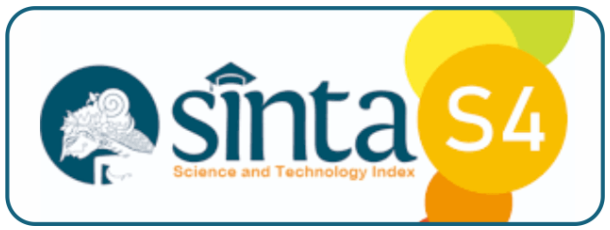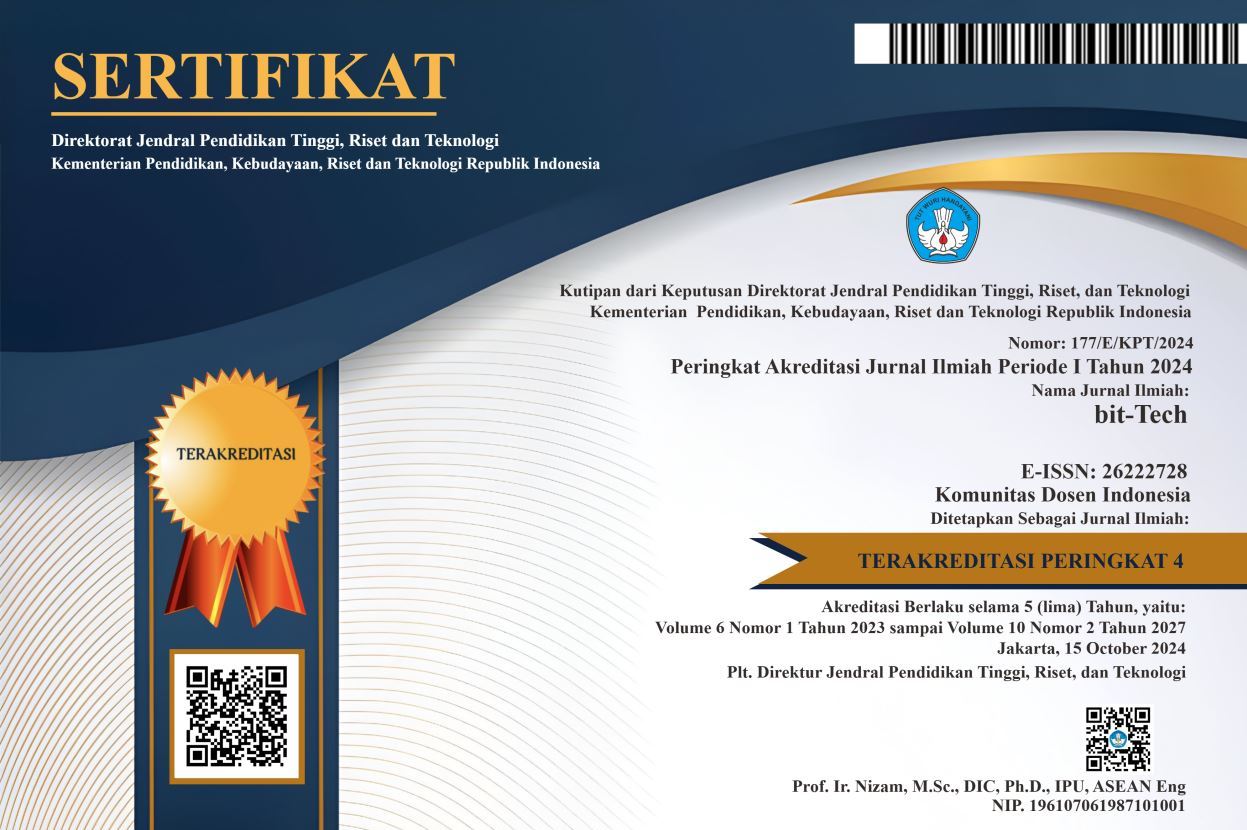Implementation of Naïve Bayes Algorithm for Classification of Mental Health of Social Media Users
DOI:
https://doi.org/10.32877/bt.v4i2.282
Keywords:
Naïve Bayes, Classification, Mental Health, Social Media
Abstract
Social media has become a human need to interact in everyday life. Apart from being a means of communication, social media also has the additional function of exchanging information on the internet in various forms including writing, images and videos. One of the social media that has many users is Instagram, where Instagram offers information sharing features in the form of images, photos and short videos. The purpose of this feature is for users to express themselves and attract the attention of others, thereby creating feelings of happiness and increasing self-confidence. In addition to positive impacts, there are also negative impacts on users, for example excessive use that causes addiction so that it can cause mental health disorders. Mental health needs to be handled properly so that it does not continue to get worse, but there are several obstacles in seeing a psychiatrist in mental health, including limited access and also negative stigma if someone sees a psychiatrist. Therefore, a tool is needed that can be an early indication in knowing the level of mental agitation, especially in the use of Instagram. Classification in data mining can help provide initial information on a person's condition in his mental health. The Naïve Bayes algorithm provides an accuracy rate of 92.5% in classifying mental health on data sets that have been clustered. Good accuracy can help social media users know their mental health condition.
Downloads
References
W. A. Social, “Digital 2020?: Global Digital Overview,” 2020.
B. D. Atmoko, Instagram Handbook Tips Fotografi Ponsel. Jakarta: Media Kita, 2012.
A. Macmillan, “Why Instagram Is the Worst Social Media for Mental Health,” 2017. [Online]. Available:
https://time.com/4793331/instagram-social-media-mental-health/.
Royal Society For Public Health, “Status of Mind,” 2017. [Online]. Available: https://www.rsph.org.uk/ourwork/campaigns/status-of-mind.html.
World Health Organization, “Mental Disorders,” 2018. [Online]. Available: https://www.who.int/en/newsroom/fact-sheets/detail/mental-disorders.
S. Kemp, “Digital 2020: Global Digital Overview,” 2019. [Online]. Available:
https://datareportal.com/reports/digital-2019-global-digital-overview.
Suyanto, Data Mining untuk Klasifikasi dan Klasterisasi Data. Bandung: Informatika, 2017.
J. Han and M. Kamber, Data Mining: Concepts and Techniques. San Francisco: Elsevier Inc., 2006.
X. Wu and V. Kumar, The Top Ten Algorithms in Data Mining. Taylor & Francis Group, LLC, 2009.
M. Bramer, Principles of Data Mining. London: Springer, 2007.
B. Bukhori, “Hubungan Kebermaknaan Hidup dan Dukungan Sosial Keluarga dengan Kesehatan Mental
Narapidana,” J. Addin, vol. 4, 2012.
Hasneli, Kesehatan Mental dalam Pandangan Islam. Padang: Haifa Press, 2014.
A. Hakim, Hipnoterapi?: Cara Tepat dan Cepat Mengatasi Stres, Fobia, Trauma, dan Gangguan Mental
Lainnya. Jakarta: Visimedia, 2010.
R. T. Vulandari, “Pengelompokan Tingkat Keamanan Wilayah Jawa Tengah Berdasarkan Indeks Kejahatan
dan Jumlah Pos Keamanan dengan Metode Klastering K-Means,” J. Ilm. SINUS, vol. 14, no. 2, 2016.
N. A. Mondoano, R. Mayasari, and F. Gunawan, “Instagram dan Kesehatan Mental pada Mahasiswa Institut
Agama Islam Negeri Kendari,” ANALITIKA, vol. 10, no. 2, p. 104, Dec. 2018.
Downloads
Published
How to Cite
Issue
Section
License
Copyright (c) 2021 Aditiya Hermawan

This work is licensed under a Creative Commons Attribution-ShareAlike 4.0 International License.
I hereby assign and transfer to bit-Tech all exclusive copyright ownership rights to the above work. This includes, but is not limited to, the right to publish, republish, downgrade, distribute, transmit, sell, or use the work and other related materials worldwide, in whole, or in part, in all languages, in electronic, printed, or any other form of media, now known or hereafter developed and reserves the right to permit or license a third party to do any of the above. I understand that this exclusive right will belong to bit-Tech from the date the article is accepted for publication. I also understand that bit-Tech, as the copyright owner, has sole authority to license and permit reproduction of the article. I understand that, except for copyright, any other proprietary rights associated with the work (e.g. patents or other rights to any process or procedure) must be retained by the author. In addition, I understand that bit-Tech permits authors to use their papers in any way permitted by the applied Creative Commons license.


 DOI :
DOI :
 Abstract views: 559
/
Abstract views: 559
/  PDF downloads: 543
PDF downloads: 543











